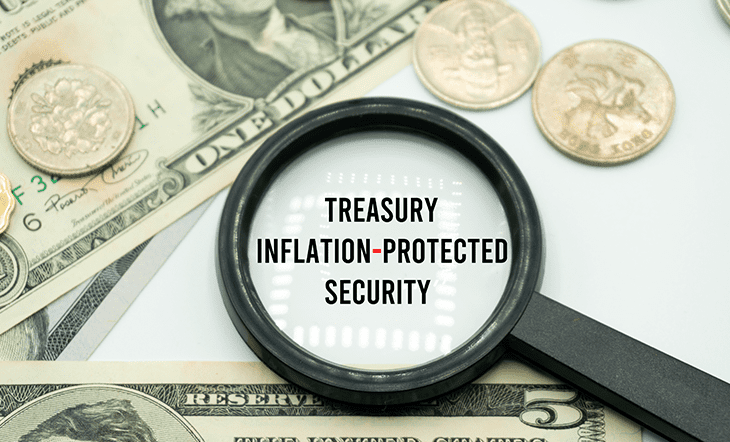TIPS (Treasury Inflation-Protected Securities) offer investors protection from rising prices, yet the tax implications can be complex and confusing. Have you ever found yourself paying taxes on something before cashing it in yet? That is what many TIPS investors face every year. Understanding how inflation adjustments and interest payments are taxed is vital in making the most out of investing with TIPS. To explore these tax considerations in detail, you can access the website for valuable insights. Let’s delve into the tax landscape to identify key considerations for investors. Tax considerations for TIPS can feel overwhelming.
Taxation of Inflation Adjustments: A Double-Edged Sword
TIPS offer protection from inflation through their principal value adjustments; however, these tax impacts must still be paid before maturity – often creating an “interest-bearing burden”. This feature may prove troublesome to investors.
Taxing an Adjusted Principal: An Unexpected Burden
As principal increases to account for inflation, any growth is taxed as income even though it has yet to materialize as cash. For instance, if inflation causes the principal of a TIPS bond to increase by $1,000, it’s added as part of one’s taxable income for that year – creating a cash flow mismatch and leaving investors exposed if they do not reinvest or sell off any earnings; though paying taxes on unrealized gains might reflect their value growth accurately but ultimately leaves many out compared with potential earnings potential that await them otherwise.
Deflation Scenarios: Tax Implications of Negative Adjustments
When deflation hits, its tax effects differ significantly from inflation’s: any decrease in TIPS principal will not offset other sources of taxable income for that year, instead simply decreasing bond value in future transactions; investors still face immediate tax implications from any prior adjustments as part of this asymmetric treatment that further highlights its complexity and demonstrates why economic trends need to be monitored closely by investors.
Taxation of Interest Payments
TIPS payments include semi-annual interest calculated using their inflation-adjusted principal. However, these earnings must still be taxed accordingly in order to effectively manage the financial implications associated with investing. Understanding how interest income is taxed is critical in managing any potential consequences when investing in TIPS securities.
Interest Income as Taxable Ordinary Income
TIPS interest payments are treated as ordinary income when received and calculated using inflation-adjusted principal values, as they often increase with inflation-induced principal adjustments over time (for instance, a $10,000 principal bond may pay $200 in initial interest, but as soon as it adjusts up to $11,000 the payments rise accordingly – while this growth in purchasing power it does increase tax liabilities significantly).
Tax Brackets’ Impact on Net Returns
An investor’s tax bracket plays a large part in determining the net yield of TIPS investments. High-income taxpayers could experience reduced after-tax returns as interest payments may be subject to ordinary income tax treatment (for instance, applying 35% taxes to $500 interest payments would leave only $325 as net income); lower-bracket taxpayers, however, might retain more earnings and make investing more worthwhile overall.
Strategies to Minimize the Tax Burden of TIPS
TIPS offer excellent inflation protection; however, their tax implications can eat away at returns if managed improperly. Adopting strategic approaches may help investors minimize their tax obligations and achieve maximum returns.
Employ Tax-Advantaged Accounts for TIPS Investments
One effective strategy for mitigating TIPS-related taxes is to hold them in tax-advantaged accounts such as an IRA or 401(k). By holding TIPS bonds within such accounts, inflation adjustments and interest payments accumulate tax deferred until withdrawal; for instance, if an initial $10,000 TIPS bond grows to $11,000 due to inflation, any interest payments or adjustments do not immediately become taxable, making this approach ideal for long-term investors looking towards retirement savings.
Planning for Taxable Accounts: Managing Cash Flow Investors holding TIPS in taxable accounts need to carefully manage cash flows through proactive planning. Setting aside funds for inflation adjustments and interest payments can avoid cash flow mismatches; further, tax loss harvesting strategies (using losses from other investments as offset gains on TIPS investments) can significantly lower the overall tax burden; selling underperforming shares to offset taxes owed can boost net returns and help ensure future profits for all!
By aligning investment strategies with tax considerations, investors can optimize the benefits of TIPS while mitigating tax-related headaches and maintaining its effectiveness for protecting wealth against inflation. Doing this helps maximize ROI.
Conclusion
Navigating the tax ramifications of TIPS investments takes careful planning and awareness. While they provide inflation protection, taxes on adjusted principal and interest can impact net returns significantly – much like walking carefully along a tightrope! By taking steps such as using tax-advantaged accounts or consulting an advisor on individual strategies tailored specifically for you, investors can optimize their TIPS investments further.
